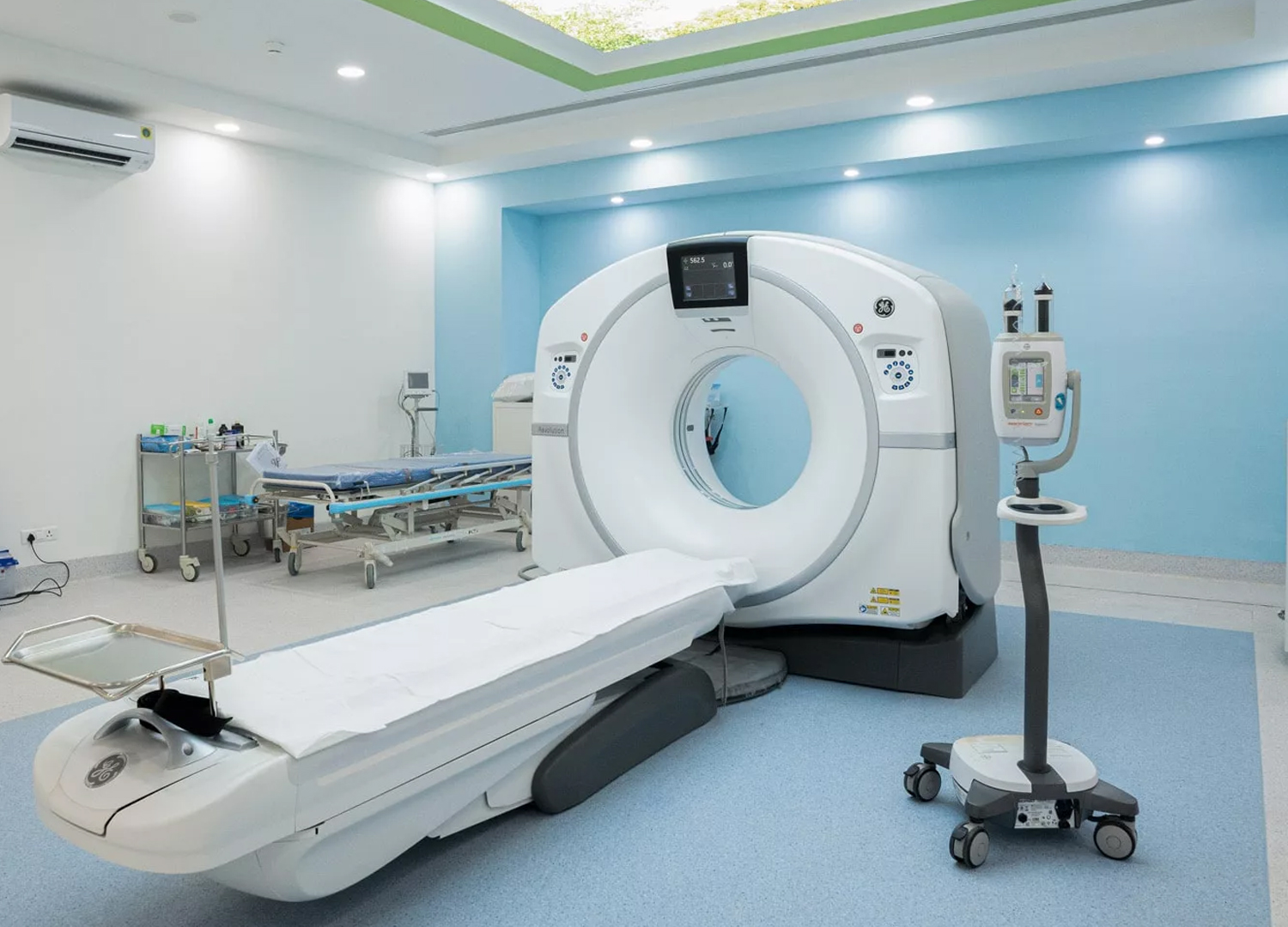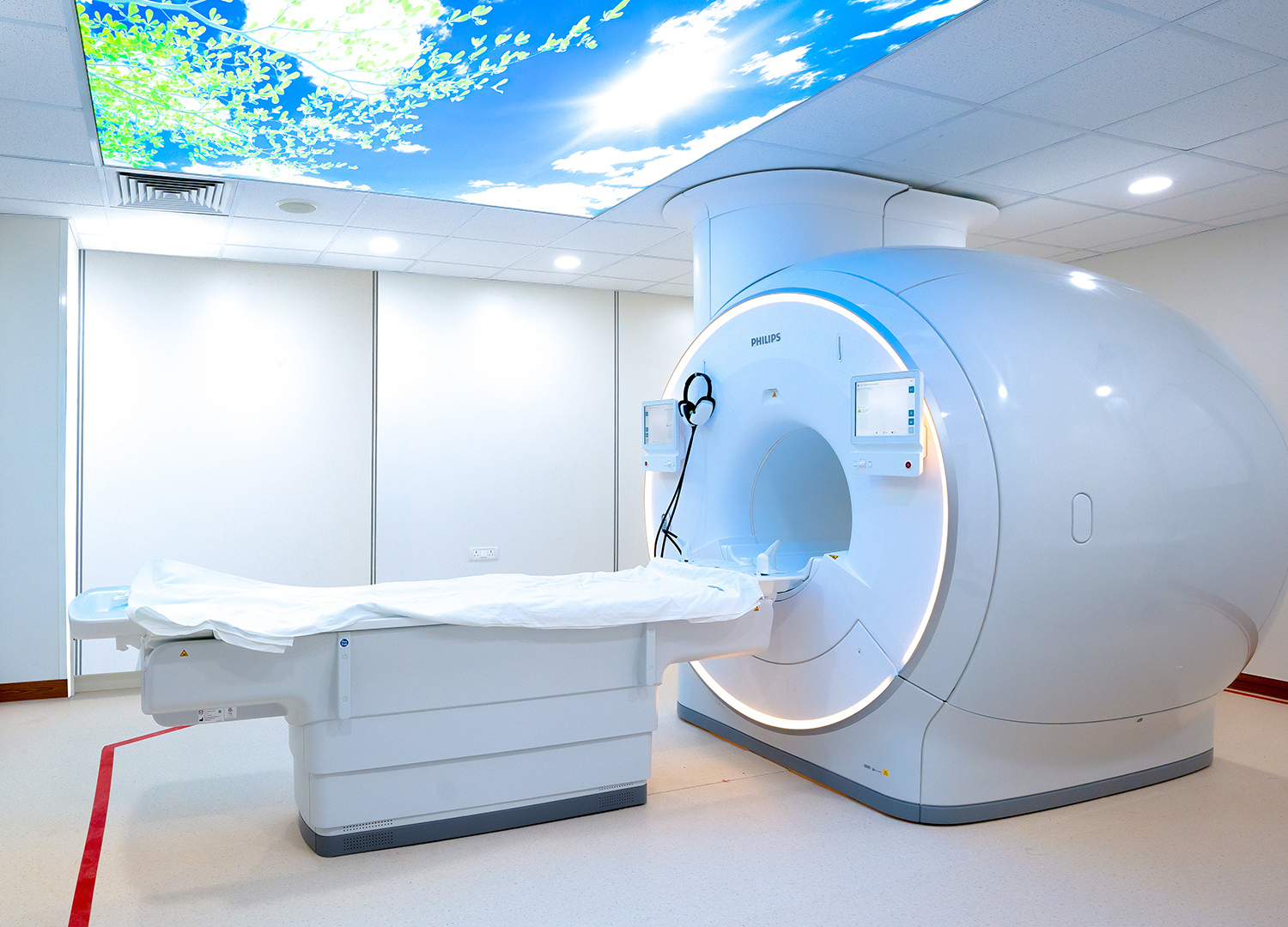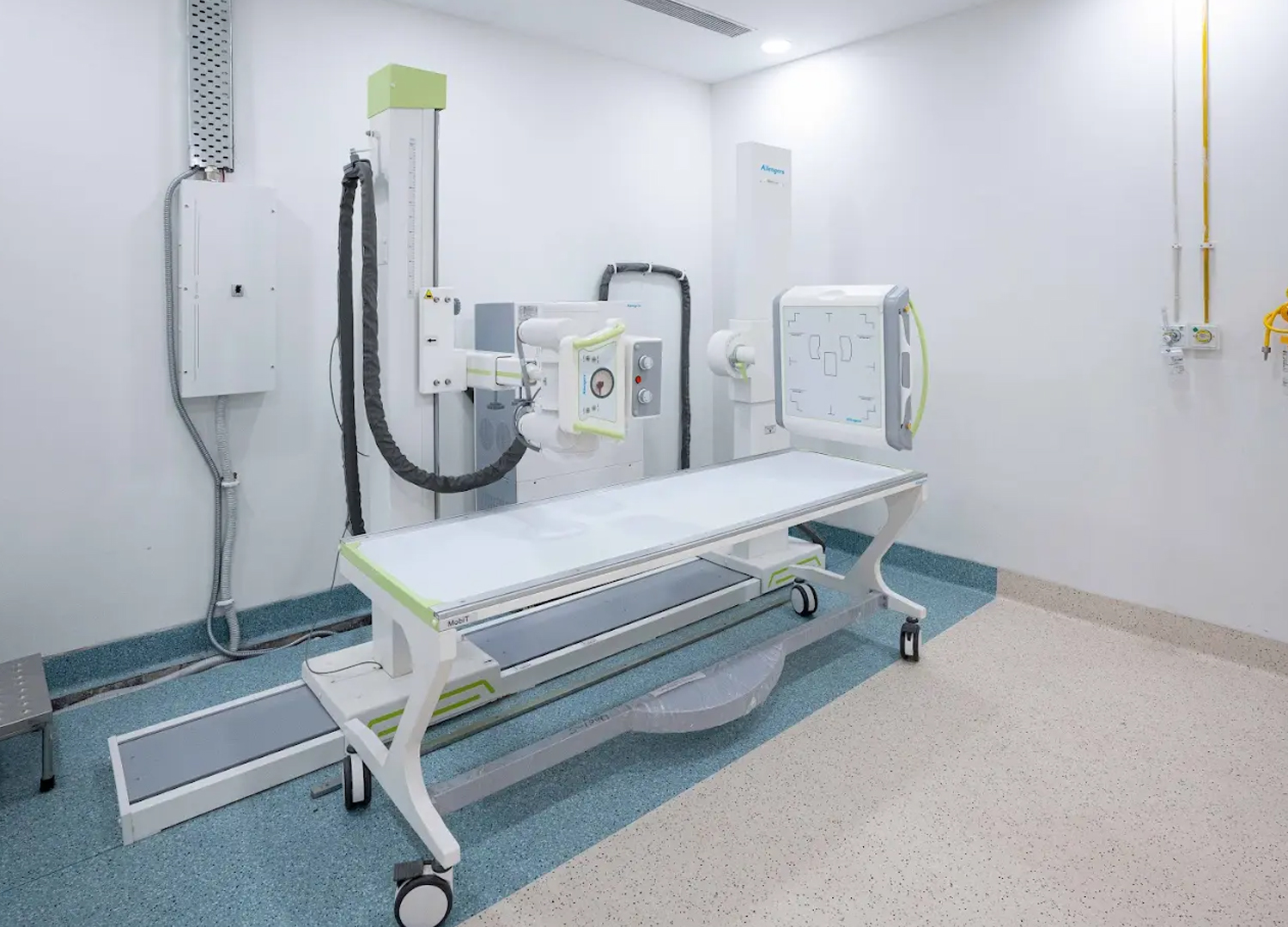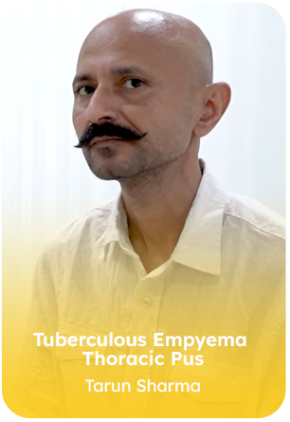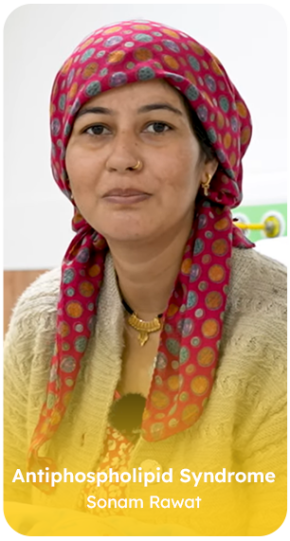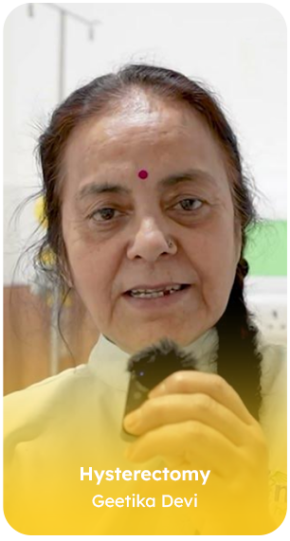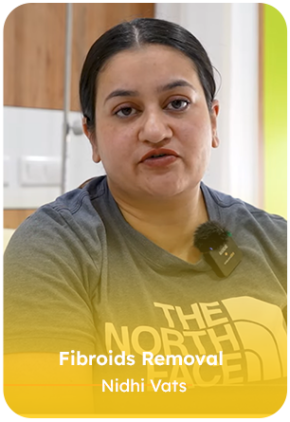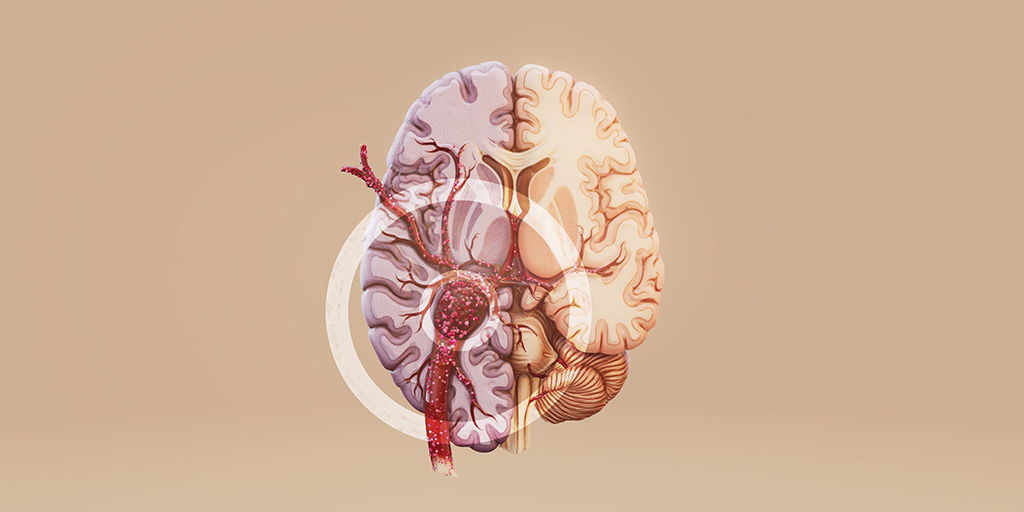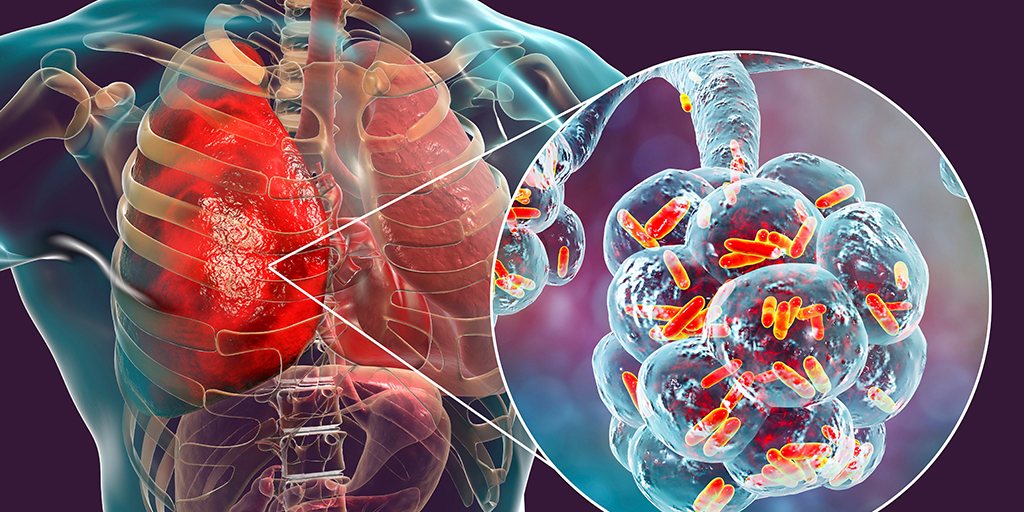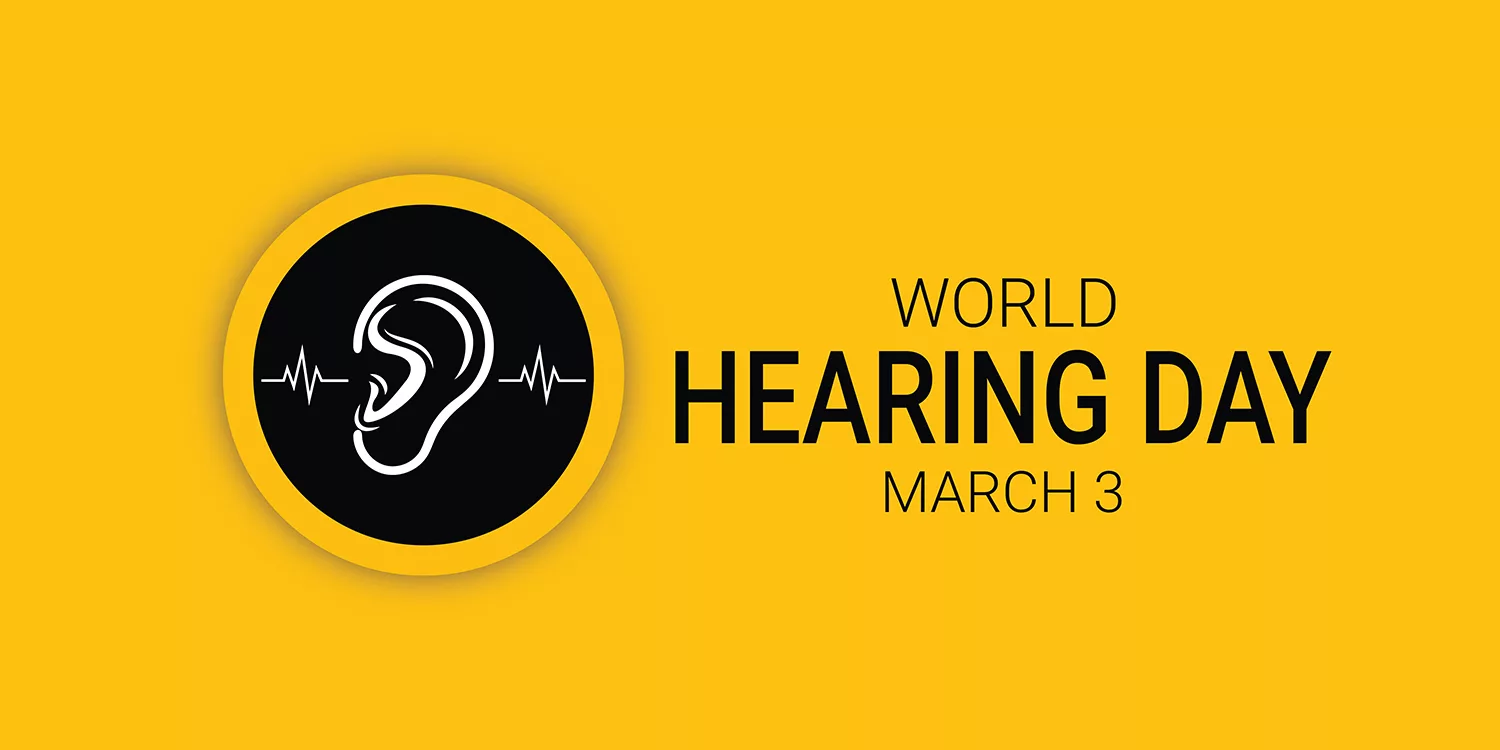At Graphic Era Hospital, the Department of Neurology is dedicated to providing exceptional care for disorders affecting the brain, spinal cord, and nervous system. With a team of highly experienced neurologists and state-of-the-art technology, we are ideally positioned to diagnose and treat a wide range of neurological conditions. Whether you’re seeking expert care for a stroke, epilepsy, or neurodegenerative diseases, our comprehensive approach ensures personalised solutions for every patient. From advanced diagnostics to innovative therapies, we are committed to improving lives and restoring hope through world-class neurological care.
What does Neurology Involve?
Neurology is a branch of medicine that specialises in diagnosing and treating disorders of the nervous system. This includes the brain, spinal cord, and peripheral nerves. Neurological conditions can range from mild headaches to severe neurodegenerative diseases, impacting movement, memory, and overall health. Our experts focus on both early diagnosis and long-term management, ensuring patients receive the care they need to lead fulfilling lives.
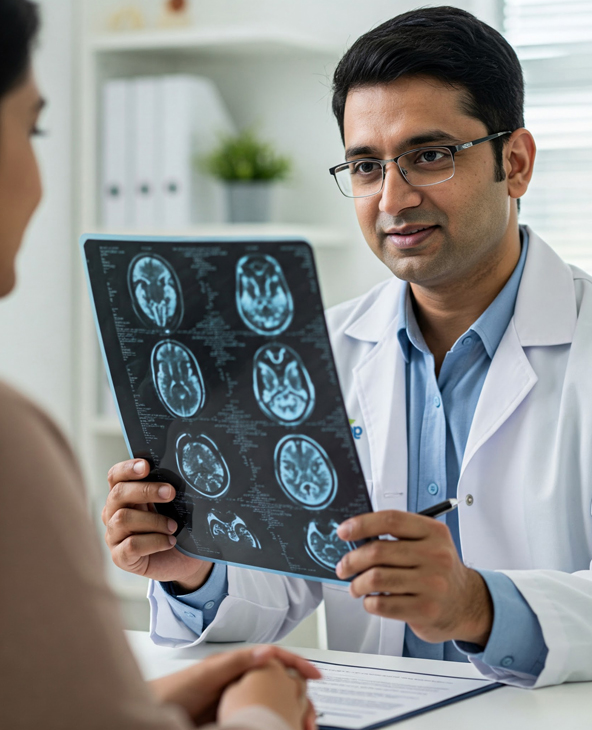
When to Consult a Neurologist
Knowing when to see a neurologist is vital for early diagnosis and effective treatment. Here are key situations that warrant consultation:
- Persistent or Severe Headaches: Frequent migraines or headaches with nausea, vision changes, or sensitivity to light may indicate a neurological condition requiring expert care.
- Seizures or Loss of Consciousness: Unexplained seizures or fainting episodes may be signs of epilepsy or other brain disorders. A neurologist can determine the cause and recommend treatment.
- Chronic Dizziness or Vertigo: Ongoing dizziness or vertigo could stem from nervous system or inner ear issues, which a neurologist can evaluate and manage.
- Memory Issues or Cognitive Decline: Difficulty remembering or frequent confusion may indicate conditions like dementia or Alzheimer’s disease that require neurological assessment.
- Movement Problems or Tremors: Tremors, stiffness, or coordination difficulties can signal disorders like Parkinson’s disease, needing prompt neurological attention.
- Numbness or Tingling in Limbs: Persistent tingling, numbness, or weakness in extremities may suggest nerve damage or disorders such as neuropathy.
- Stroke Symptoms: Sudden numbness, slurred speech, confusion, or trouble walking are stroke indicators needing immediate neurological intervention.
Neurological Conditions Treated at Graphic Era Hospital
Our department offers diagnosis and treatment for a wide range of neurological conditions, including but not limited to:
Stroke Clinic
At Graphic Era Hospital, our Stroke Clinic is dedicated to providing swift, specialised care for stroke patients, ensuring timely intervention to reduce complications and enhance recovery outcomes. Key services include:
- Rapid Stroke Diagnosis & Treatment: Immediate assessment using advanced imaging techniques to differentiate between ischemic and hemorrhagic strokes for precise treatment.
- Thrombolysis & Endovascular Procedures: Cutting-edge treatments, including clot-dissolving medications and minimally invasive procedures, to restore blood flow and prevent further brain damage.
- Stroke Prevention & Risk Management: Personalised strategies focusing on lifestyle modifications, blood pressure control, diabetes management, and cholesterol regulation to lower the chances of recurrent strokes.
- Comprehensive Post-Stroke Rehabilitation: Long-term recovery plans featuring physical therapy, speech therapy, and cognitive rehabilitation to improve mobility, speech, and overall quality of life.
Neuro Rehabilitation & Physical Therapy
At Graphic Era Hospital, our Neuro Rehabilitation & Physical Therapy services are designed to help patients regain mobility, functionality, and independence following neurological injuries, disorders, or surgeries. Our goal is to enhance recovery through personalised, evidence-based therapies tailored to each patient’s unique needs. Key features of our rehabilitation programme:
- Comprehensive Therapy Plans: Individualised physical, occupational, and speech therapy to improve movement, coordination, and communication skills.
- Advanced Post-Stroke & Brain Injury Recovery: Specialised rehabilitation techniques for patients recovering from strokes, spinal cord injuries, and traumatic brain injuries to restore daily functions.
- Multidisciplinary Approach: A team of neurologists, physiotherapists, rehabilitation specialists, and speech therapists working together to maximise recovery outcomes.
- Support for Chronic Neurological Conditions: Ongoing therapy for patients with multiple sclerosis, Parkinson’s disease, neuropathies, and other degenerative disorders to manage symptoms and enhance quality of life.
- Cutting-Edge Rehabilitation Techniques: Utilisation of assistive devices, balance training, muscle strengthening, and cognitive therapy for holistic recovery.
Electrophysiology Services
At Graphic Era Hospital, our Electrophysiology Unit specialises in the diagnosis and treatment of neurological disorders using state-of-the-art diagnostic tools. These tests help assess nerve, muscle, and brain function, enabling accurate detection of epilepsy, neuropathies, and other neurological conditions. Key services we offer:
- Electroencephalography (EEG): Monitors brain activity to diagnose epilepsy, seizures, and other neurological abnormalities.
- Nerve Conduction Studies (NCS): Evaluates peripheral nerve function to detect neuropathies, carpal tunnel syndrome, and nerve damage.
- Electromyography (EMG): Assesses muscle and nerve function, aiding in the diagnosis of neuromuscular disorders, myopathies, and nerve compression syndromes.
- Evoked Potential Testing: Measures electrical signals in the brain and spinal cord to evaluate sensory and motor pathway disorders, including multiple sclerosis and spinal cord injuries.
Paediatric Neurology
At Graphic Era Hospital, our Paediatric Neurology Services are dedicated to diagnosing and treating neurological conditions in children, ensuring early intervention for better long-term outcomes. Our team of expert paediatric neurologists provides compassionate, family-centred care to support both the child and their caregivers. Key areas include:
- Comprehensive Epilepsy & Seizure Management: Advanced diagnostics and personalised treatment plans for children with epilepsy and seizure disorders.
- Developmental & Neuromuscular Disorders: Early detection and therapy for speech delays, motor skill challenges, and muscle-related conditions to enhance growth and functionality.
- Genetic & Metabolic Neurological Conditions: Expertise in diagnosing and managing hereditary and metabolic disorders that impact brain development and nerve function.
- Cerebral Palsy & Autism Spectrum Disorders: Tailored interventions, including physical therapy, behavioural therapy, and assistive technologies, to improve mobility and cognitive abilities.
- Parental Counselling & Long-Term Care Planning: Guidance, education, and emotional support for families, helping them navigate long-term neurological care needs.
Neuro Critical Care
At Graphic Era Hospital, our Neuro Critical Care Unit provides life-saving treatment for patients with severe and life-threatening neurological conditions. Equipped with advanced monitoring systems and a team of expert neurologists, intensivists, and critical care specialists, we ensure round-the-clock, specialised care for critically ill patients. Key features of our neuro critical care unit:
- Expert Management of Severe Neurological Emergencies: Comprehensive care for traumatic brain injuries, intracranial hemorrhages, severe strokes, and status epilepticus.
- Continuous Brain & Vital Function Monitoring: Advanced intracranial pressure monitoring, EEG surveillance, and real-time assessment of brain activity to detect complications early.
- Ventilatory Support & Multi-Organ Management: Specialised critical care support, including mechanical ventilation, sedation protocols, and organ failure management for patients with complex conditions.
- Multidisciplinary Approach for Holistic Treatment: A coordinated team of neurologists, neurosurgeons, critical care specialists, and rehabilitation experts to ensure the best possible recovery outcomes.
Neuropsychiatry
At Graphic Era Hospital, our Neuropsychiatry Services focus on the connection between neurological conditions and mental health, offering comprehensive care for patients with both cognitive and emotional challenges. Our expert team combines the expertise of neurologists and psychiatrists to provide individualised treatment plans for optimal brain and mental well-being. Key areas of expertise:
- Neurological Disorders with Psychological Symptoms: Specialised care for patients with depression, anxiety, and mood disturbances linked to Parkinson’s disease, epilepsy, and multiple sclerosis.
- Management of Complex Neuropsychiatric Conditions: Diagnosis and treatment of dementia, schizophrenia, psychosis, and bipolar disorder, addressing both cognitive and behavioural aspects.
- Cognitive Assessments & Therapies: Advanced neuropsychological evaluations to assess memory loss, attention deficits, and behavioural changes, especially in patients with Alzheimer’s disease or stroke-related impairments.
- Personalised, Integrated Treatment Plans: A holistic approach combining neurological expertise, medication management, psychotherapy, and cognitive rehabilitation to improve patient outcomes.
Stroke
Strokes occur when the blood supply to the brain is disrupted. Immediate medical attention is critical to minimise brain damage. Our team is equipped with advanced diagnostic tools and treatments to restore blood flow and prevent further complications.
Epilepsy
Epilepsy is a neurological disorder marked by recurrent seizures. Our specialists use advanced diagnostic methods such as EEGs and offer tailored treatment plans, including medication and surgical interventions, to help patients achieve a seizure-free life.
Parkinson’s Disease
A progressive disorder affecting movement, Parkinson’s disease can significantly impair daily activities. We provide advanced treatments, including Deep Brain Stimulation (DBS), to manage tremors, stiffness, and other symptoms, helping patients regain independence.
Multiple Sclerosis
Multiple Sclerosis (MS) is an autoimmune condition that affects the brain and spinal cord. Our experts use immunomodulatory therapies and rehabilitation strategies to slow progression and manage symptoms like muscle weakness and fatigue.
Alzheimer’s Disease
Alzheimer’s disease is a leading cause of dementia, impacting memory and cognitive abilities. Our team offers diagnostic evaluations, medication, and supportive care to improve patient quality of life and provide guidance to families.
Dementia
Dementia encompasses a range of disorders that impair memory, thinking, and behaviour. We offer neuropsychological assessments and tailored interventions to support patients and their caregivers.
Neuropathy
Neuropathy involves nerve damage, often resulting in pain, numbness, or weakness. We employ treatments like medication, physical therapy, and nerve stimulation techniques to alleviate symptoms and restore function.
Migraine and Severe Headaches
Chronic migraines and severe headaches can disrupt daily life. Our neurologists create customised treatment plans, including preventive medications and lifestyle adjustments, to help patients find lasting relief.
Chronic Pain Syndromes
Pain that persists for months or years requires a comprehensive approach. Our team collaborates with pain management specialists to develop effective strategies for conditions such as fibromyalgia and complex regional pain syndrome.
Movement Disorders
From tremors to dystonia, movement disorders require specialised care. We utilise medications, Botox injections, and surgical interventions to improve motor control and reduce discomfort.
Neurodegenerative Diseases
Conditions like Huntington’s disease and amyotrophic lateral sclerosis (ALS) affect the nervous system progressively. Our multidisciplinary approach combines medication, therapy, and support for both patients and families.
Doctors Available
Why Choose Graphic Era Hospital for Neurological Care?
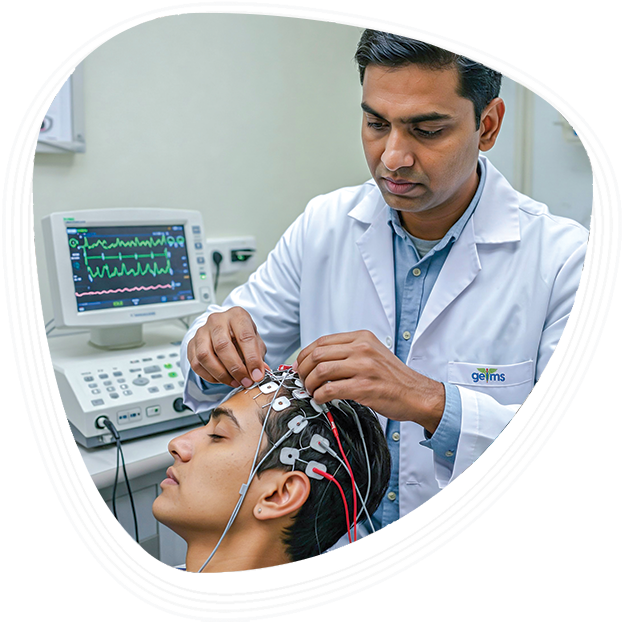
Cutting-Edge Neurological Procedures
At Graphic Era Hospital, we leverage advanced medical technologies and innovative techniques to diagnose and treat a variety of neurological conditions. Our goal is to provide accurate assessments, effective treatments, and improved patient outcomes. Below are some of the cutting-edge neurological procedures offered by our highly skilled team:
EEG (Electroencephalogram): Essential for Epilepsy Diagnosis
An EEG is a non-invasive test that measures the electrical activity of the brain. It plays a vital role in diagnosing epilepsy and other neurological disorders by identifying abnormal brain wave patterns. This procedure is painless and helps neurologists determine the severity and type of seizures, allowing for personalised treatment plans.
EMG (Electromyography): Evaluating Nerve and Muscle Function
EMG is used to assess the health of muscles and the nerves that control them. It is particularly effective in diagnosing neuropathies, muscle disorders, and motor neuron diseases. During the test, small electrodes are inserted into muscles to record electrical activity, providing valuable insights into nerve and muscle health.
MRI and CT Scans: Accurate Imaging for Neurological Disorders
Magnetic Resonance Imaging (MRI) and Computed Tomography (CT) scans are crucial tools for visualising the brain and spinal cord. These imaging techniques help detect strokes, tumours, multiple sclerosis, and other structural abnormalities. The high-resolution images enable precise diagnosis and facilitate the development of targeted treatment strategies.
Cerebral Angiography: Advanced Stroke Assessment
Cerebral angiography is a specialised procedure used to visualise blood vessels in the brain. It is essential for diagnosing conditions such as aneurysms, vascular malformations, and blockages that may lead to strokes. This minimally invasive test involves injecting a contrast dye into the blood vessels, followed by X-ray imaging, to provide detailed views of the brain's vascular system.
Deep Brain Stimulation (DBS): Revolutionary Treatment for Parkinson’s
Deep Brain Stimulation is a highly effective surgical procedure for managing movement disorders such as Parkinson’s disease, dystonia, and essential tremor. During DBS, electrodes are implanted in specific areas of the brain and connected to a pacemaker-like device that sends electrical signals to regulate abnormal brain activity. This treatment significantly improves motor function and enhances the quality of life for patients.
Spinal Cord Stimulation: Relief for Chronic Pain
Spinal Cord Stimulation is a cutting-edge procedure used to manage chronic pain in conditions such as neuropathy and failed back surgery syndrome. The technique involves implanting a small device near the spinal cord, which delivers mild electrical pulses to block pain signals before they reach the brain. This minimally invasive approach offers significant relief without the need for heavy medications or invasive surgery.
Neuropsychological Testing: Comprehensive Cognitive Assessment
Neuropsychological testing is a detailed evaluation of a patient’s cognitive, emotional, and behavioural functions. These tests are essential for diagnosing conditions like dementia, Alzheimer’s disease, and traumatic brain injuries. The results help neurologists develop personalised rehabilitation and care plans for patients experiencing memory loss or cognitive decline.
Neuroendoscopy: Minimally Invasive Brain Surgery
Neuroendoscopy is an advanced surgical technique that uses a small camera, called an endoscope, to access and treat conditions such as brain tumours, hydrocephalus, and cysts. This minimally invasive procedure reduces the risk of complications, minimises scarring, and allows for faster recovery times compared to traditional open surgeries.
At Graphic Era Hospital, these state-of-the-art procedures are carried out by highly experienced neurologists and neurosurgeons, ensuring the best possible care for patients. By integrating cutting-edge technology with compassionate treatment, we strive to provide unparalleled neurological care for individuals and families in need.
Book a Consultation Today
Graphic Era Hospital in Dehradun is a trusted name in neurological care. Our team of experts combines cutting-edge technology with a compassionate approach to deliver exceptional care for patients with complex neurological conditions. Whether it’s managing chronic pain or performing life-saving procedures, we are committed to helping you lead a healthier, more active life.
Top Procedures
- Electroencephalogram (EEG)
- Nerve Conduction Study (NCS)
- Electromyography (EMG)
- Evoked Potential Tests
- Lumbar Puncture (Spinal Tap)
- Video EEG Monitoring
- Transcranial Magnetic Stimulation (TMS)
- Autonomic Nervous System Testing
- Cerebral Angiography
- Carotid Doppler Ultrasound
- Neuropsychological Testing
- Intravenous Immunoglobulin (IVIG) Therapy
Neurology Conditions Treated at Graphic Era Hospital
Advanced Diagnostics & Technology
- Offers high-resolution imaging for detailed blood vessel analysis, aiding in accurate diagnosis and treatment planning.
- Delivers advanced imaging with high resolution for clear, detailed views of soft tissues, ensuring precise diagnostics.
- Provides high-quality, detailed radiographic images for accurate diagnosis with minimal exposure to radiation.
Other Specialities
Patient Stories
Blog
Frequently Asked Questions (FAQs)
What services are provided by a neurology hospital?
Neurology hospitals offer a wide range of services, including diagnosis and treatment for conditions like stroke, epilepsy, Parkinson’s disease, migraines, dementia, and neurodegenerative disorders. Advanced procedures such as EEG, MRI, CT scans, Deep Brain Stimulation, and neuro-rehabilitation are also available.
What treatments are offered for epilepsy?
Epilepsy treatment typically includes anti-seizure medications tailored to the patient’s condition. For patients who do not respond to medication, options like vagus nerve stimulation, ketogenic diets, and in certain cases, surgery are available. Comprehensive care also includes lifestyle guidance and seizure management strategies.
Are there non-surgical treatments for Parkinson’s disease?
Yes, non-surgical treatments for Parkinson’s disease include medications like levodopa, physical therapy to improve movement and balance, occupational therapy, and lifestyle modifications. In some cases, advanced options like deep brain stimulation (DBS) are considered when medications are no longer effective.
What tests are used to diagnose neurological conditions?
Neurological conditions are diagnosed using various tests and imaging techniques, including:
- EEG (Electroencephalogram): To assess brain activity, especially for epilepsy.
- MRI and CT Scans: To detect brain and spinal cord abnormalities.
- EMG (Electromyography): To evaluate nerve and muscle health
- Cerebral Angiography: To assess blood vessels in the brain.
These diagnostic tools provide precise insights into the patient’s condition, enabling accurate treatment.
Does the hospital offer neuro-rehabilitation services?
Yes, neuro-rehabilitation services are available to help patients recover and regain function after neurological events like stroke, traumatic brain injuries, or spinal cord injuries. These programs include physical therapy, occupational therapy, speech therapy, and psychological counselling tailored to individual needs.
How can I book an appointment with a neurologist?
Booking an appointment at Graphic Era Hospital is easy. You can contact the hospital directly via phone, visit the official website for online booking, or walk in to schedule a consultation. Our team ensures quick and hassle-free appointment processes to address your concerns promptly.

